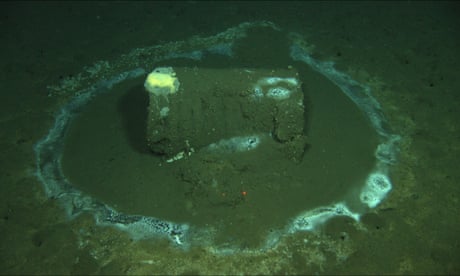- by foxnews
- 19 Mar 2025
High concentrations of DDT found across vast swath of California seafloor
High concentrations of DDT found across vast swath of California seafloor
- by theguardian
- 26 Mar 2023
- in news

For years industrial companies in southern California used the coast as a dumping ground for toxic chemical waste, including DDT. Decades later, scientists have found that the pesticide remains in high concentrations on the ocean floor and has never broken down.
Nearly two years after the discovery of tens of thousands of barrels of waste off the coast of Los Angeles, a scientist working on the issue shared this week that the chemical is still spread across a vast stretch of the seafloor, the Los Angeles Times reported.
DDT, which was widely used in the US as an agricultural pesticide and sprayed in large quantities at beaches to kill mosquitoes, has been linked to cancer and disease in humans and the mass die-off of animals. In the 1970s, it was banned in the US due to its harmful effects on wildlife and potential risks to humans. Research has shown a link between exposure to the chemical and breast cancer as well as reproductive problems.
Southern California was the center of DDT production in the US. The Montrose Chemical Corporation in Torrance produced massive amounts of the chemical between the end of the second world war through 1982. During that time, before Congress banned such activity, up to 2,000 barrels a month of acid sludge waste containing DDT were dumped off the coast. Workers sometimes poked holes in the barrel so they would sink more quickly.
A two-week survey, conducted in 2021 by a team from the Scripps Institution of Oceanography at University of California, San Diego and the National Oceanic Atmospheric Administration, using seafloor robots, sonar acoustic imagery and data helped reveal the scale of the issue, finding more than 25,000 barrels. Scientists identified more than 100,000 human-made items across the entire survey area.
DDT has already been linked to continued harmful affects on wildlife. On the central California coast, which also served also a dumping ground for DDT, a 20-year-long study found a link between exposure to contaminants and high rates of cancer and herpes in sea lions.
- by foxnews
- descember 09, 2016
Expedia customer says hotel requested cancellation because rate was too 'low'
A woman traveling overseas says she booked a hotel room through Expedia.com, only for the hotel to call and ask her to cancel due to the rate being too "low."
read more


